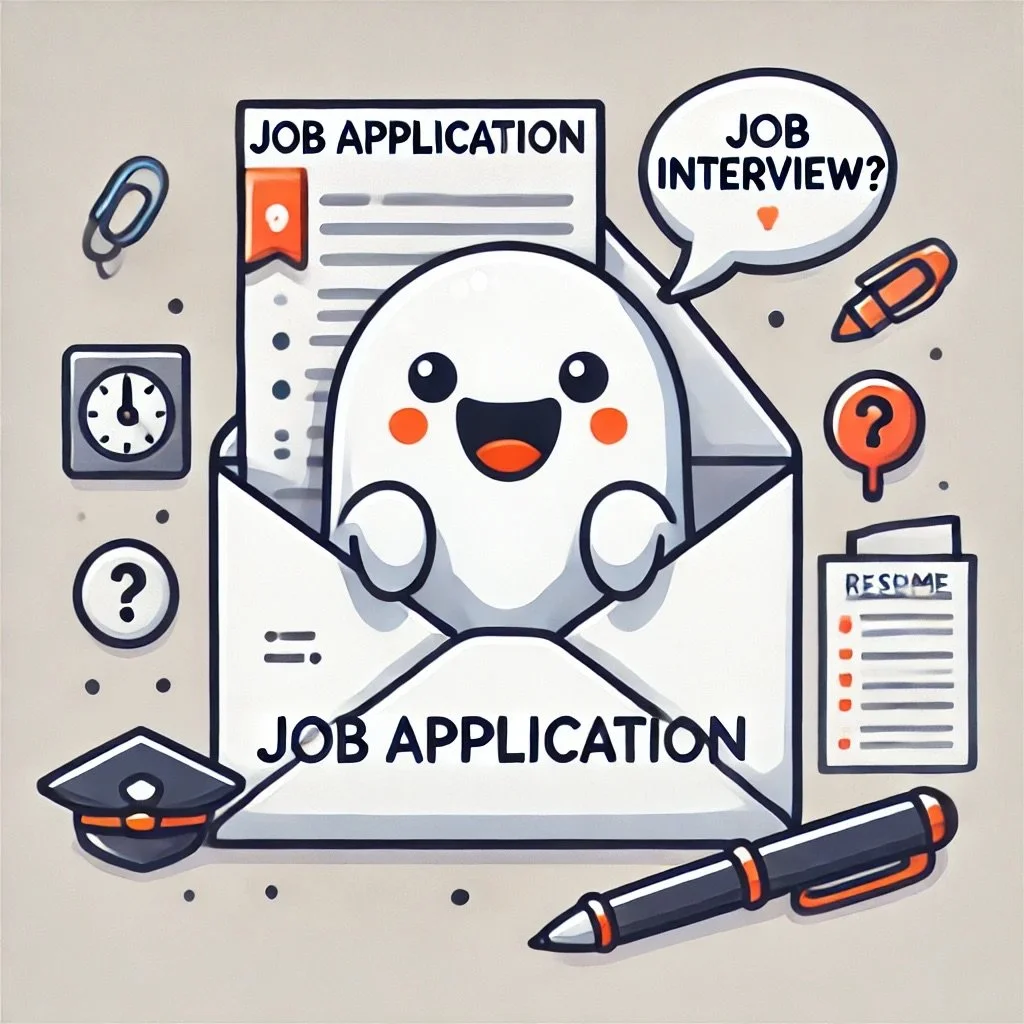Job Ghosting Exposed:Why It’s Dominating the Hiring Process
It’s a situation we know all too well: You apply to a job that seems perfect, acing multiple rounds of interviews, feeling optimistic. Then—silence. Days turn into weeks. No polite rejection. No update. The recruiter disappears. The company vanishes into thin air without so much as a rejection email. You wonder: Did I dream this entire hiring process?
Ghosted in the Application Process
I personally experienced this. After a promising first interview, the recruiter assured me I’d move on to the next round, saying I’d hear from him within three days. I followed up, only to be ignored. A week later, I saw the same job reposted. This is not just disrespectful—it’s a growing problem in today’s job market.
Ghosting has become a familiar experience for many candidates. With Millennials and Gen Z dominating the workforce, they are both victims and drivers of this shift in workplace dynamics. This article explores how ghosting reflects changing norms, generational expectations, and evolving professional standards—along with what companies must do to fix the problem before losing top talent for good.
How Common is Job Ghosting?
The rise of ghosting in the hiring process is backed by data. A 2023 survey by Indeed found that 40% of candidates reported being ghosted after an interview, while 35% said their applications were ignored without acknowledgment. Meanwhile, 84% of employers confessed to being ghosted by candidates, including some who didn’t show up on their first day of work.
This phenomenon has frustrated both parties. Candidates lament wasted time and energy spent on multiple interviews without feedback, while companies struggle to fill roles amid unpredictable no-shows. A Reddit user recently shared their experience of being ghosted after five rounds of interviews, saying:
“I invested so much time, only to be met with silence. How hard is it to send a rejection email?”
Ghosting is no longer a rare occurrence—it’s becoming the new normal, exposing inefficiencies in corporate hiring practices. It reflects deeper flaws in the hiring system. Companies overwhelmed by applications often fail to manage communication effectively. But ghosting isn’t just about poor logistics—it is perceived as a symptom of disrespect and lack of accountability.
One Reddit user shared how they were ghosted after a couple of rounds of interviews, calling it a “complete waste of time and energy.” Another user expressed frustration, saying:
"If a company can’t even reject me properly, I’m not going to take them seriously."
These stories reveal a pattern—job seekers are fed up and increasingly speaking out through reviews on platforms like Glassdoor or Reddit.
How Companies Are Failing: The Ghost Job Phenomenon
Some companies ghost for logistical reasons, but others use "ghost jobs"—listings with no intent to hire—to maintain a talent pipeline or meet compliance requirements. For example, organizations may post jobs publicly while planning to hire internally. Others do it to keep employees feeling replaceable, subtly pressuring them to work harder out of fear. This practice, often seen in large corporations and staffing agencies, gives the illusion of growth while wasting candidates' time.
The Waiting Game: A Playful Take on Job Ghosting
Candidates see through these tricks. When employers post misleading roles or fail to communicate, they risk damaging their brand and reputation. Reaching out months later to candidates they previously ignored is not just unprofessional—it’s insulting for some. For candidates, these practices are demoralizing. Reposting jobs after ghosting applicants sends a clear message: the company doesn’t value transparency. As a result, candidates are increasingly hesitant to engage with such employers when approached again.
The Power Shift: Why Job Seekers Ghost Employers?
In today’s competitive job market, skilled candidates—especially Millennials and Gen Z—have taken control. These generations, shaped by experiences of burnout and toxic work environments, now place a premium on transparency, meaningful work, and efficient communication. If hiring processes drag on or recruiters fail to follow up, candidates don’t wait around—they move on to better opportunities.
For many, ghosting is a message: “Your process isn’t worth my time.” In a fast-moving economy, younger workers view long, drawn-out interview cycles as a red flag. They prefer streamlined, responsive employers that match their expectations for work-life balance.
Ironically, companies often complain about being ghosted, failing to recognize they may be responsible for creating this environment. Poor communication, vague timelines, and lack of feedback discourage candidates from engaging further. Candidates aren’t ghosting out of malice. It’s a coping mechanism. They’re exhausted from workplace rejections, over-interviewing, and uncertainty. In their view, adhering to outdated formalities offers little benefit when employers fail to reciprocate with professionalism.
Redefining Professionalism: Is Ghosting Justified?
Generational shifts play a key role in changing workplace behaviors. The traditional definition of professionalism—punctuality, patience, and formality—is no longer the gold standard. For Millennials and Gen Z, professionalism now means efficiency, honesty, and respect.
They prioritize transparency, authenticity, and mental health over rigid business formalities. From their perspective, ghosting isn’t just a breakdown in communication—it’s a logical response to inefficient hiring processes. After all, if companies can ghost candidates, why should candidates adhere to outdated etiquette?
However, ghosting isn’t without consequences. It can burn bridges, limit future opportunities, and damage professional reputations. Even in an evolving job market, respectful communication still matters. Candidates who handle rejections gracefully—by sending a polite withdrawal email instead of ghosting—leave a better impression and keep doors open for future opportunities.
A New Kind of Professionalism: Balancing Respect with Efficiency
Balancing Respect and Efficiency in Hiring Practices
The rise of ghosting reflects a shift toward a new kind of professionalism, where respect and efficiency replace formality and endless waiting. Employers must recognize that every interaction with a candidate shapes their reputation, whether or not a hire is made. Streamlining hiring processes—limiting interviews to two or three rounds and maintaining regular communication—demonstrates respect for candidates’ time.
Likewise, job seekers must recognize that burning bridges by ghosting employers could have long-term consequences. Candidates also play a role in fostering better practices. While leaving negative reviews on platforms like Glassdoor raises awareness, maintaining professionalism is equally important. A well-timed follow-up or polite withdrawal can set the standard for constructive communication and helps candidates maintain credibility, opening doors for future opportunities.
In the end, professionalism isn’t about rigid rules or outdated norms—it’s about mutual respect. And respect, as both companies and candidates are learning, goes a long way.
What Can Companies Do Differently?
If companies want to attract and retain the best talent, they need to rethink their hiring practices. Here are a few strategies:
Communicate Transparently: If a position has been filled, postponed, or a candidate didn’t make it, send a courteous update is essential. Even when internal delays affect the hiring timeline, being upfront about the situation helps manage expectations. A simple email takes seconds and can leave a lasting positive impression, keeping the door open for future opportunities.
Shorten the Hiring Process: Lengthy interview processes stretched over several weeks discourage candidates. In a fast-moving job market like the U.S., where flexibility is key, candidates are often seeking immediate opportunities—not roles that require 5-6 weeks of back-and-forth. Streamlining decision-making not only respects candidates' time but also ensures that companies don’t lose top talent to more responsive employers.
Provide Feedback: Even if the feedback is brief, it shows candidates that their efforts were valued. Offering thoughtful insights—whether about areas of strength or improvement—demonstrates professionalism and leaves a positive impression.This fosters goodwill and increases the chances of future collaboration.
Invest in Employer Branding: In today’s competitive market, candidates pay close attention to how companies treat applicants. Negative experiences spread quickly online, damaging a company’s reputation.
Follow Up Promptly: If candidates are ghosted after several interviews, they are unlikely to respond positively when contacted later. Companies need to act quickly to maintain trust and interest.
How Candidates Can Respond to Ghosting
Candidates also need strategies to navigate a market where ghosting is common:
Follow Up Once: If you don’t hear back, send a polite follow-up. If there’s still no response, move on without burning bridges.
Share your experiences: Sharing your stories on social media platform helps spread awareness and connect with others who have similar experiences. It can also hold companies accountable for their behavior. Public accountability can drive change.
Stay Active: Always keep applying, even if an interview goes well—never assume you have the job until it’s in writing.
Conclusion: Moving Beyond Ghosting
Let’s move beyond ghosting—because relationships matter
The rise of ghosting reflects deeper issues in the job market—issues of power, transparency, and frustration. But it also offers an opportunity for growth. Companies can learn from their mistakes, improve their hiring practices, and build better relationships with candidates. Likewise, job seekers can advocate for fair treatment without compromising their professionalism.
The job market of the future may look very different from today, but one thing remains true: relationships matter. Whether you’re a company or a candidate, how you treat others in the hiring process shapes your reputation—and that reputation will follow you long after the interview is over.
So, the next time you're tempted to ghost, ask yourself: Is there a better way to handle this? Because the answer, more often than not, is yes.



